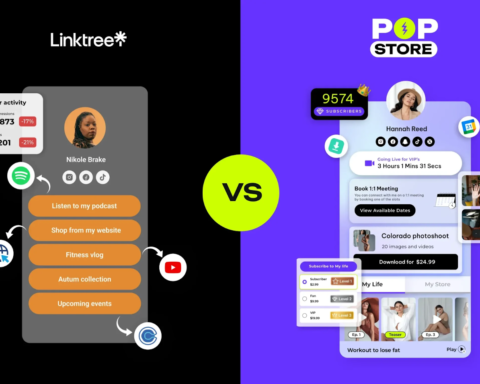Post Preview
Key Takeaways:
- Understand how text messaging is transforming customer communication in car dealerships.
- Discover the benefits of implementing texting solutions for both customers and dealerships.
- Learn about the most effective strategies for utilizing text messaging in automotive businesses.
- Get insights into compliance, best practices, and integrating texting with other dealership software.
Table of Contents:
- Introduction to Text Messaging in Dealerships
- Benefits of Implementing Text Messaging
- Effective Strategies for Using Text Messaging
- Compliance and Best Practices
- Integrating Text Messaging with Other Software
- Real-Life Examples
- Future Trends in Dealership Text Messaging
Introduction to Text Messaging in Dealerships
Text messaging has quickly become an essential tool for automotive dealerships. As consumer preferences shift towards more immediate and convenient communication methods, dealerships are discovering the advantages of adopting auto dealer text messaging solutions. This technology enhances customer engagement and streamlines various dealership operations, making it a win-win for clients and businesses. The auto industry has long relied on traditional forms of communication, such as phone calls and emails. Still, these methods must often be revised to deliver the instantaneous interaction that modern consumers crave. Integrating text messaging into dealership operations isn’t just a trend; staying competitive in a fast-paced industry is becoming necessary. Modern consumers expect quick and efficient communication, and dealerships find that meeting these expectations can significantly improve customer satisfaction and loyalty. By leveraging text messaging, dealerships can provide timely updates, respond to customer inquiries swiftly, and offer personalized service that fosters a stronger connection with their clientele.
Benefits of Implementing Text Messaging
There are numerous benefits to incorporating text messaging into dealership operations. Firstly, it provides a faster and more efficient communication channel than traditional phone calls and emails. Text messaging allows sales teams and service departments to quickly answer questions, schedule appointments, and notify customers about any updates regarding their vehicles. This immediacy can be crucial in converting potential leads into loyal customers, as quick responses often lead to higher satisfaction. Secondly, text messaging enhances customer satisfaction by giving customers quick updates on their inquiries, service appointments, or vehicle availability. When customers feel their time is valued, they are more likely to return for future purchases or services, cultivating long-term loyalty. Additionally, text messaging can reduce the incidence of missed appointments and improve overall operational efficiency, as customers are more likely to see and respond to texts promptly.
Effective Strategies for Using Text Messaging
To effectively implement text messaging in dealerships, dealerships should focus on personalization, timely responses, and automation tools. Personalization shows dealership value for each customer, enhancing their experience and loyalty. Timely responses are crucial to keep customers engaged, as prompt responses can save potential customers from losing them to competitors. Automated responses can handle routine tasks like appointment reminders and special promotions, freeing up staff to focus on more complex interactions. Maintaining a friendly tone is essential for establishing a positive rapport with customers, even with automated messages. Dealerships can create a more personalized and engaging customer experience by focusing on these strategies.
Compliance and Best Practices
Dealerships need to adhere to compliance regulations regarding text messaging. This includes obtaining explicit consent from customers before sending any messages and providing an easy opt-out option. Ensuring that customers have given their permission to be contacted via text message not only builds trust but also protects the dealership from potential legal issues. Best practices also involve securing customer data and ensuring all communication is transparent and aligned with legal standards. Dealerships should implement robust data protection measures to safeguard personal information and regularly review their policies to comply with evolving regulations. Training staff on the legal aspects of text messaging can ensure that all team members abide by best practices, thereby minimizing risks and enhancing customer confidence.
Integrating Text Messaging with Other Software
Text messaging and other dealership software solutions can significantly improve operational efficiency. Integration with customer relationship management (CRM) systems facilitates seamless tracking of customer interactions and improved follow-up management. A CRM system can centralize emails, phone calls, and text messages in one location, simplifying the process for dealership employees to track customer history and interactions.
Moreover, integrating text messaging tools with inventory management software provides timely information on product availability. For instance, a pre-written text can be delivered promptly to potential buyers if a car is ready. This accelerates the selling process and generates a livelier and more reactive atmosphere. By linking all systems, dealerships can offer a more cohesive and efficient service to customers, which leads to decreased wait times and enhanced satisfaction levels.
Real-Life Examples
Several dealerships have successfully integrated text messaging into their customer communication strategies. For instance, a dealership in Texas reported a 20% increase in customer satisfaction after implementing a texting solution for appointment reminders and service updates. Customers appreciated the convenience of receiving timely updates without making phone calls or sending emails. The dealership also noticed reduced missed appointments, leading to more efficient use of service staff time. Similarly, a dealership in California saw a 15% boost in sales conversions by using texting to engage potential buyers during the purchase decision process. The dealership kept potential customers informed and interested by sending personalized messages and timely follow-ups, ultimately leading to more sales. These success stories highlight the tangible benefits of adopting text messaging in the automotive sector. They provide compelling evidence of how technology can be harnessed to improve customer satisfaction and business performance.
Future Trends in Dealership Text Messaging
Improved customization techniques and chatbots are driven by AI, which points to a promising future for text messaging in dealerships. AI chatbots can handle basic consumer inquiries, allowing human workers to work on more challenging assignments. Frequently asked inquiries can be instantly answered by these chatbots, giving clients access to the information they require. Thanks to sophisticated data analytics, dealerships can more effectively personalize communications based on client preferences. Dealers can create more enticing and individualized communications by analyzing customer data to see the client’s preferences and past activities. Dealerships need to stay on top of the latest technological advancements to remain competitive and meet the ever-higher demands of their customers. Adopting these improvements can result in increased efficiency and customer delight, reinforcing the status of text messaging as a crucial tool in the automotive sector. By investing in cutting-edge texting solutions, dealerships can maintain a competitive edge, improve customer satisfaction, and boost business expansion.
Stay in touch to get more news & updates on Essential Tribune.Com!








